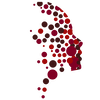Your Speech Pathologist has determined that you are at risk for aspirating certain foods which may then enter your lungs, placing you at risk for infection and/or choking. Your Speech Pathologist has determined that limiting your diet to soft foods may help to reduce your risk of aspirating. As such, it is important to closely follow these guidelines.
What is a soft diet?
Being on a soft diet means that the foods you eat will need to be soft enough to easily cut with a fork. In general, if it makes a noise when you bit into it, you likely shouldn’t be eating it! Foods made with ground meats as well as pastas and casseroles are examples of some common soft food items. Tougher meats such as steak and chicken should be avoided unless they are very tender. In some cases, it may be better to avoid these meats completely but your Speech Pathologist will discuss this with you.
It will always be easier to eat foods on a soft diet when they are well moistened. You may like to use extra sauces, gravies and syrups to moisten your foods. If you need to use thickened liquids, be sure to follow the guidelines for how thick these items should be.
Try to avoid anything crunchy. Often, soft casseroles will have a crunchy topping that may be difficult to manage for someone on a soft diet. Other soft foods such as French toast or pancakes may develop hard crusts. These should be softened by soaking in a liquid such as syrup or removed entirely before eating.
Foods to avoid
Some foods will always be difficult to swallow safely if you are on a soft diet. The following items should be avoided:
- Jello
- Nuts and Seeds
- Crisp Bacon
- Raw Vegetables
- Crisp Fruits
- Dried Fruits
- Corn and Popcorn
- Chips and Other Crunchy Foods
- Dry Cereals
If there are certain foods you know you have a difficult time swallowing, you should always avoid them, even if you do not see those items listed above.

